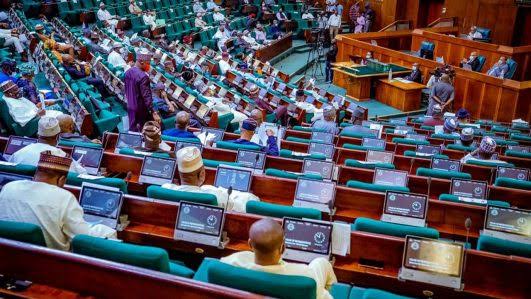Tuesday May 13, 2025 |
On Tuesday, May 13, Nigeria’s House of Representatives voted down a constitutional amendment bill that aimed to rotate the presidency and vice presidency among the country’s six geopolitical zones.
Six other constitutional bills were also rejected but will be revisited on Wednesday for individual consideration.
To streamline debate, the House suspended its rules, allowing members to focus on any of the seven listed bills.
The rotational presidency bill drew the most attention, with strong opposition from lawmakers who feared it would set a harmful precedent.
Deputy Minority Leader Aliyu Madaki led the charge against the bill, arguing, “Issues the bill intend to cure has been addressed by the Federal Character Commission.”
He cautioned against embedding rotation in the constitution, noting that political parties already have mechanisms for fair representation.
Sada Soli (APC, Katsina) called the proposal “ingenuous” but questioned its impact on leadership quality, warning, “Adopting the rotation principle will not be in the interest of the country as it will promote regional and ethnic rivalry.”
Shina Oyedeji (PDP, Oyo) echoed concerns, saying, “If you adopt zoning and it’s comes to the South West for example, which state will take the position? Is it Ogun or Oyo?”
He argued for equal opportunity for all Nigerians to aspire to the presidency.
Bello Mohammed El-Rufai raised practical issues, asking, “What will happen if the President dies while in office like it happened when former President Umaru Musa Yar’adua died?”
He added, “Whatever you do in Nigeria, there will always be a cry of marginalisation. We should not engage in a dangerous precedent by putting it in the Constitution.”
Olumide Osoba (APC, Ogun) noted, “It will be out of place to force the political parties on where to choose their candidates during elections.”
However, Minority Whip Ali Isa supported rotation, stating, “In 2027, we should allow the Presidency go to the North East for the sake of fairness and allow all zones to produce the President.”
He argued that all zones have qualified leaders and that fairness is already enshrined in the Federal Character principle.
Clement Jimbo (APC, Akwa Ibom) backed the bill, saying it would address “age long injustice metted on the minority groups,” but suggested a clause to end the rotation after each zone has had a turn.
After a heated debate and voice vote, the rotational presidency bill and others, including proposals to shift political party regulation from INEC and create new local government areas, failed to pass second reading.
Related posts
Categories
- Advertisements (1)
- Agriculture (45)
- Breaking News (26)
- Business (598)
- Crime (991)
- Education (320)
- Entertainment (128)
- Features (13)
- For The Records (43)
- Foreign News (1,190)
- Health (219)
- Home News (332)
- Interview (9)
- Judiciary (352)
- Lifestyle (140)
- Local News (111)
- National News (1,448)
- Opinion (26)
- Politics (1,014)
- Religion (157)
- Science and Technology (125)
- Security (684)
- Sports (881)
- States' News (822)
- Transportation (330)
- Uncategorized (10)

